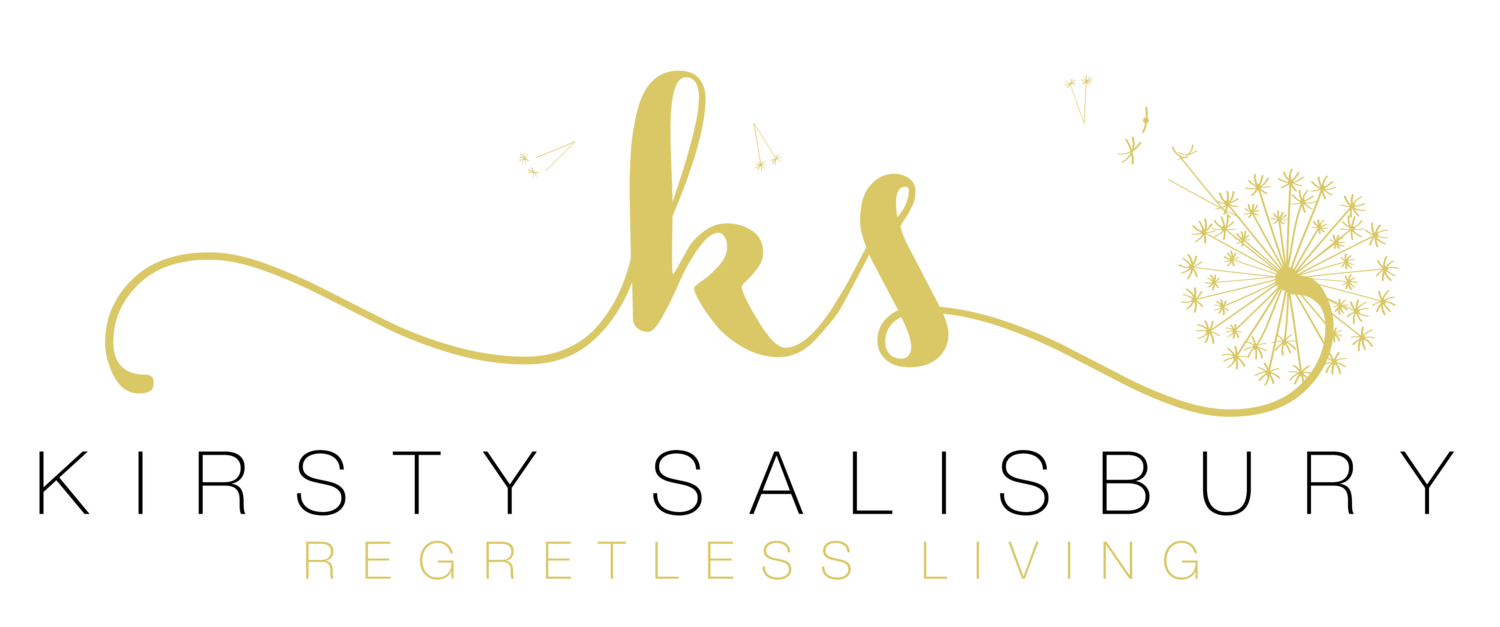Regret 101 - What is regret, and what can we do about it?
Ok, you might want to settle in with a cuppa for this one. There’s a lot in it, and we are about to go deep.
So, regret…
It is a word that all too many of us are familiar with. But, have you ever stopped to think about what it really means?
There are two key habits that can rob our present moments of joy. They are, worrying about the future and... well, regretting the past.
There are some definite benefits when it comes to visualising and setting goals for the future, and we can also benefit from analysing and learning from past events. However, too much time spent in negative spaces outside the present moment can be detrimental to our physical, mental, and emotional health.
Basically, time spent regretting things is time wasted. But, how can we stop ourselves from falling into this all too easy habit?
Well, the first step in changing our habits is to understand them. So, let's spend some time to unpack what regret actually is, why we experience it, and how we can use it to our advantage...
Regret Defined
Regret happens when we let past events affect our current mindset. It involves holding onto decisions or outcomes and wishing they had turned out differently. It can also have us turning back the clock, replaying events that have already taken place and imagining ourselves acting in a different way. When we boil it all down, regret is related to unmet expectations, and often it involves self-blame.
When we are feeling regretful, we may find ourselves repeating phrases like:
I wish…
If only…
I can’t believe…
There is no denying that regret can be a powerful emotion. One that may also lead on to physical sensations if left untreated. However, rather than focussing in on the regret, or on the fact that we can’t turn back time to do things differently, I believe that regret can be reduced or even eliminated when we look at what we can control in the situation.
So do we have a choice about regret?
It’s a good question! Because often, we beat ourselves up, wishing we could change the past.
But Interestingly, regret may not be experienced in the same way by everyone. Research has shown that cultures who embrace free will and individual choice tend to experience higher levels of regret.
Why is that?
Well, when we have free reign over our own behaviour, we tend to blame our own decisions and actions for the outcomes.
However, in cultures where people have less free will and individual choice, people tend to recognise that they had no other option. They find it easier to accept what has happened rather than blaming themselves.
So can regret be beneficial?
You bet! I know it might seem like a strange question to ask when regret is considered to be a negative emotion. But, in many ways, this emotion can greatly serve us by helping us understand what we need to change in the future. It can also provide insight into how we want our lives to be, and inspire us to refocus on a new path.
There is a reason that we learn more from our mistakes than from our successes.
Something as simple as choosing not to go on a haunted house ride as a child can impact our adult behaviours. You see by allowing fear to rule our lives can mean that we miss out on many other experiences (and possibly successes as a result). If we learn to follow a pattern of fear from early on, we may find this influencing our future decisions.
Regret can also be beneficial when we consider future regrets. What we DON’T want to regret later on, and how can those things positively influence our current actions. Regret most often comes when we aren’t connected to our present moments, or aware of how the little things create the big things.
So when is regret unhealthy?
If painful thoughts of the past continuously haunt us, or we find that we can’t let go of feelings of regret, we may find ourselves in a negative state of mind. These thought patterns can result in low self-esteem, lack of confidence, chronic stress, and even depression.
Regret is a perfectly normal emotion. Its very presence can help us to identify and guide our future behaviours. However, we do not want to dwell too heavily in the past. To prevent regret from becoming an overwhelming emotion, we can recognise there are some things that we can’t change no matter what we do. And whilst we may not have the power to change things, we do have the power to change how we respond to them, or how much space we let these things take up in our life.
Having a positive mindset, and focusing on what we can control can make a massive difference. In order to thrive, we need to learn to let go of what we cannot control and aim to positively influence what we can.
It can be helpful to acknowledge that we did the best that we could with what we had at that time. We are constantly evolving and learning, and it’s easy to be too hard on ourselves.
So, let me ask...do you have regrets? Are you ready to let go of them?
If so, then why not join me for a free 5 Week Challenge to #forgetregret! Each week I will pop into your inbox with helpful tips and strategies to ditch the regret and embrace the positive. Sign up for the challenge here.
Photo by: Sharon McCutcheon






